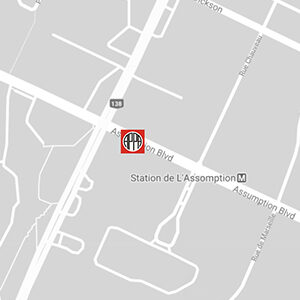“An extra 1.3% over 5 years – pathetic. It’s just a big fuss about nothing.” Front commun representatives were extremely disappointed, though not terribly surprised, when they learned the contents of the offer tabled this morning by the Treasury Board. This offer is seen as an affront. Once again, the government simply doesn’t understand the problems experienced in public services or the urgency of saving a ship that is about to sink. It is also utterly disconnected from workers’ anger as they continue, despite their exhaustion, to carry the weight of fragile public services on their shoulders.
“This offer is another slap in the face for 420,000 Front commun workers,” thundered CSN first vice-president François Enault, CSQ president Éric Gingras, FTQ president Magali Picard and APTS president Robert Comeau, speaking with one voice on behalf of the Front commun. “Too little, too late – it’s an insult. The workers we represent are done with turning the other cheek.”
Even though 100,000 people turned out in the streets to support the Front commun on September 23, even though a mandate for an unlimited general strike was adopted with 95% in favour, even though a first day of strike action has been announced, once again the mountain has given birth to a mouse. The government still wants to decide everything on its own and impose its will, a habit it’s developed since it was first elected in 2018.
“From our point of view, there’s nothing in this offer that would justify cancelling the strike,” added the spokespersons. “The fact is that strike action is the only thing the government will respond to. That’s what it wants, and our message will be loud and clear when we walk out on November 6.” The union leaders said they will take time to analyze the offer in detail, and will present it to their respective decision-making bodies. However, it is already clear that the offer does not meet their members’ expectations.
Pay offer
The pay offer, which has gone from 9% to 10.3% over 5 years, will do nothing to abolish the enormous pay gap between 420,000 Front commun workers and other Québec workers.
“The government is proposing that we should get poorer, and the new pay offer doesn’t change that,” said the spokespersons. “We’re still playing in the same crummy disaster movie.”
Meanwhile, the government chose to give MNAs 30% as a catchup pay increase, providing them with real gains, along with other yearly increases. SQ police officers were offered 21%. The agreement to be reached with the Front commun will have to that into account.
“Those substantial increases were offered for jobs that are mostly held by men,” said the union representatives. “Public service workers, meanwhile, are offered nothing but crumbs – and 78% of these workers are women. So what we’re seeing is discrimination against women, which is deeply unacceptable.”
Premiums
In extending some premiums until the collective agreement is renewed, Minister LeBel has done the only reasonable thing, given the circumstances. But this is not a gain for workers – they’re already receiving the premiums. And the government would have been making a serious mistake in attacking the conditions of work and practice of workers employed in sectors that are struggling with major problems, especially since it claims that it wants to be an employer of choice. At the same time, the government is setting off a powder keg by abolishing administrative measures taken under COVID.
Pension issues
The government has withdrawn a “detention” measure that it wanted to associate with RREGOP (the Government and Public Employees Retirement Plan). The idea was to force employees with 35 years of service to work until age 57, rather than age 55, before they could retire without being penalized. This is undoubtedly good news. However, the most significant attack is still there – a proposal to reduce RREGOP benefits because the Québec Pension Plan has been enhanced, even though RREGOP is in excellent financial shape.
Sectoral tables
Achieving a settlement for public-sector workers will certainly require an agreement at the central table, but there will also have to be agreements at sectoral tables. “Despite all the signals recently sent out at these tables, including a reduced number of demands, our counterparts from the employer side tell us they have no mandate to discuss even their own demands,” said union leaders. “We’ve reached the point where we’re wondering if the government actually has the will or the ability to reach satisfactory agreements in the near future.”
The Front commun is available as ever to negotiate and achieve rapid progress, to its members’ satisfaction, at the bargaining tables.



